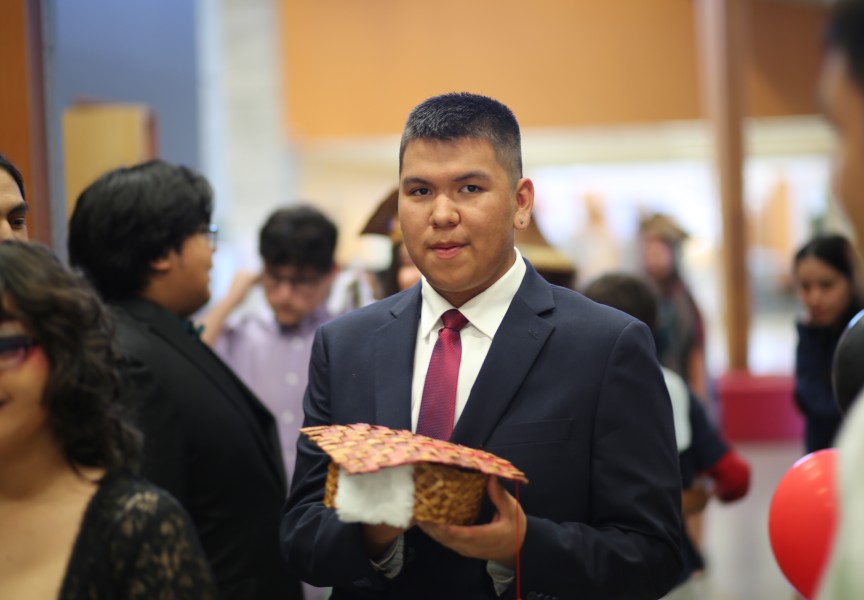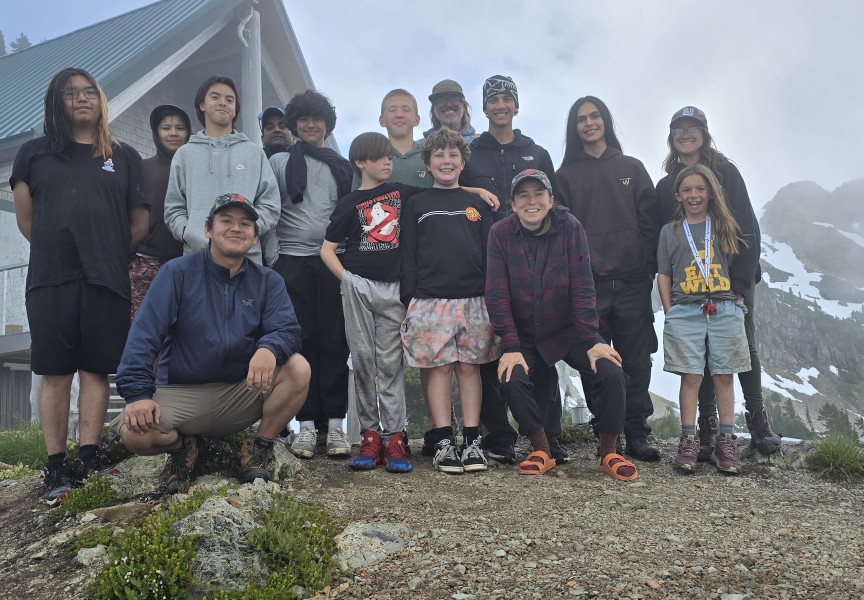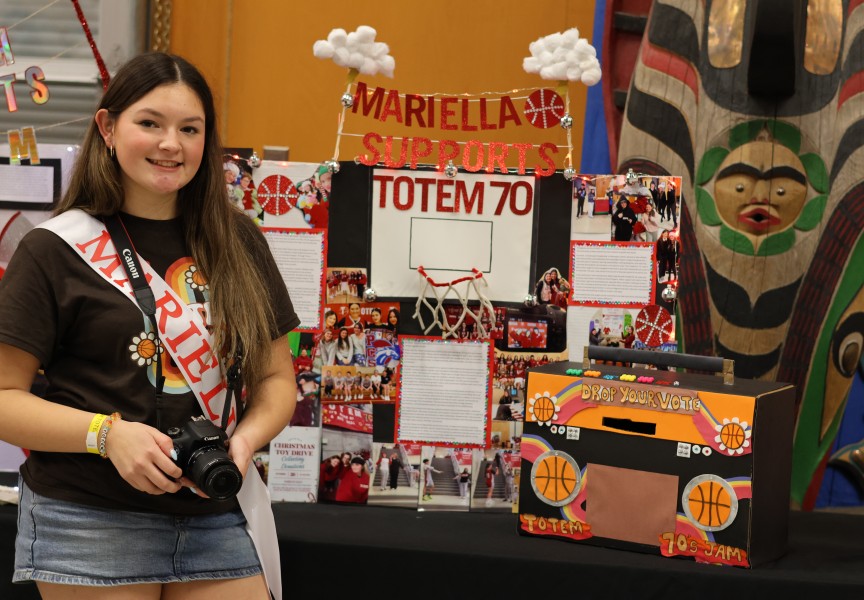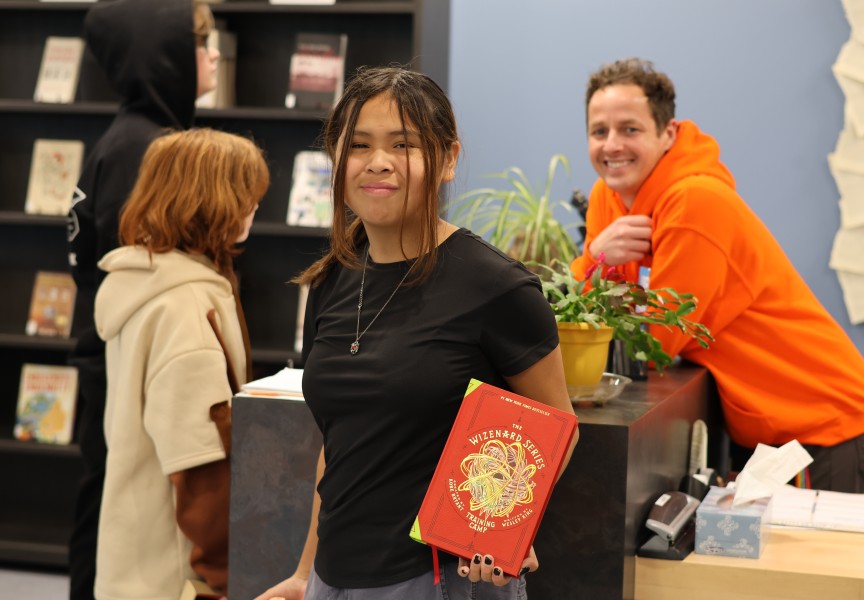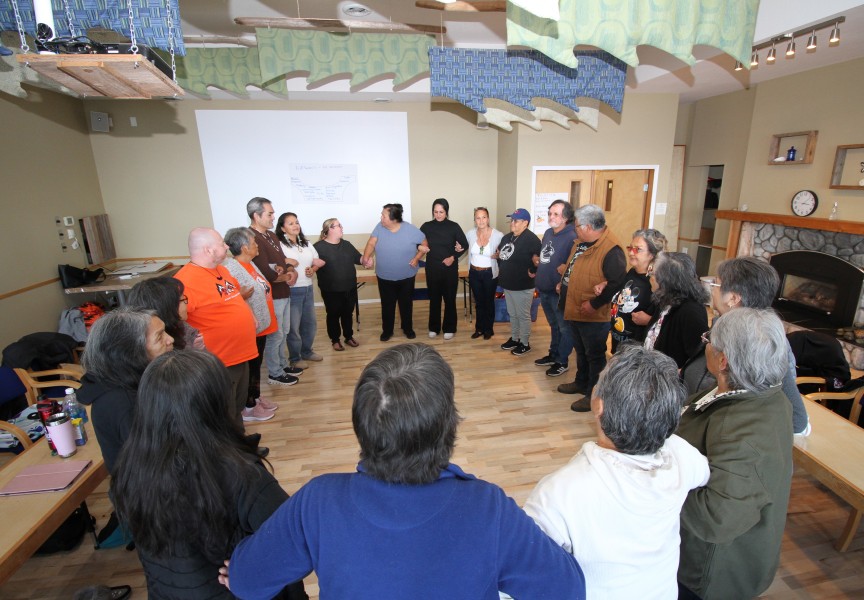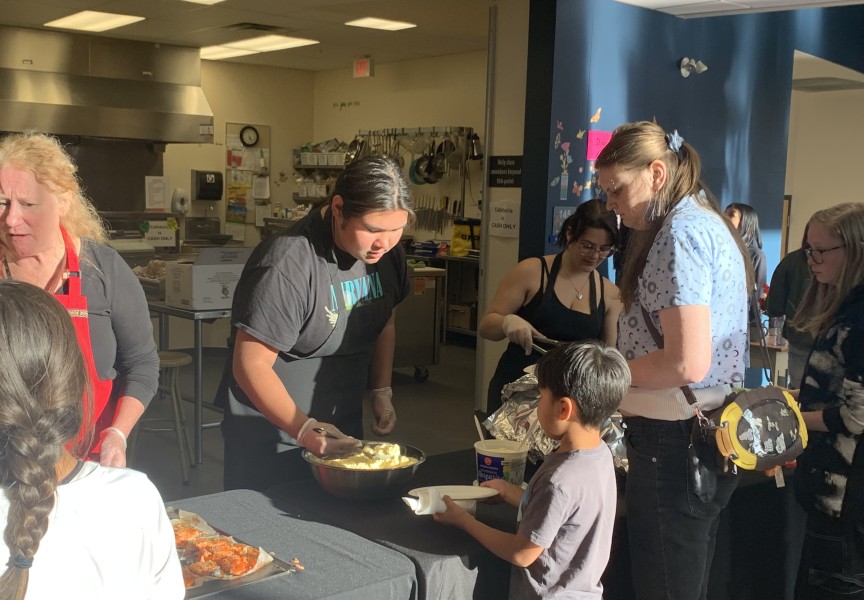Reflecting on the new Pacific Rim School District 70 Land-Based Learning (LBL) program that set sail at the beginning of the 2024-25 scholastic year, Alberni District Secondary School (ADSS) teacher Sarah Williams spills over with joy.
She says attendance records for LBL students increased dramatically, their marks went up and, overall, they were happier and feeling better about themselves.
“I am living out my professional dream,” said Williams, who took a one-year leave of absence to help bring the vision of the LBL program to life.
“We’re doing something right. It’s working. The kids want to be in school, they are showing up and they are engaging, and they are being present more than they ever have,” she said.
Ucluelet Secondary Schools’ (USS) LBL program mirrored the success of ADSS.
“Their mental health and self-worth have increased; and sense of community and belonging,” said USS LBL teacher Jackson, who has Sheena Charleson by his side as a support worker.
“I’m really lucky to have Sheena Charleson here. She is auntie to a lot of my students. Having her here really helps create that safe space,” said Jackson.
While not specifically targeting Indigenous students, most of the inaugural LBL cohorts were First Nations.
“The majority of learners that have been disengaging have been Indigenous students because they haven’t connected with either the content or the lack of community or the traditional four-wall setting,” said Williams.
Each semester, Williams and Jackson took on a cohort of 16 students from Grade 9 to 12. The group stayed together for the entire semester and met daily.
“We start in a circle and we end in a circle. I work very hard to create a community and a sense of safe space,” said Williams. “It’s not a top-down approach. I am learning alongside them.”
“We do a lot of circle work as well. Mostly our Monday mornings are our big circle. We start in a good way by just checking in and hearing about people’s weekend. We do a lot of looking back on the weekend or the previous week to work on building our retention of memory,” said Jackson.
The LBL teachers incorporated a framework based on values from the Nuu-chah-nulth seasonal food round and engaged an “entire village of elders and knowledge keepers” to help teach Environmental Science, Math, Language Arts, Active Living and Food Studies, all in an outdoor setting.
“It’s not the same each semester. It’s very seasonal and changes with each of the moons. We design activities so that the students are out there on the land and water appreciating those changes that happen throughout the season,” Williams shared.
In the fall, ADSS LBL students helped biologists install a trap to capture wild salmon spawners at Ward Creek while the USS cohort camped out on upper Kennedy River and participated in forest ecology, plotting species and habitat work with Redd Fish Restoration.
The students practiced ‘isaak’, which means respect, by chopping and delivering wood to elders to keep them warm. Overnight canoe journeys taught them tidal predictions, and many finished the course with Paddle Canada Level 1 canoeing certification.
David Maher, SD70’s principal of Learning and Innovation, championed the birth of the LBL program alongside the Indigenous Education Council and the SD 70 Board of Education. As the former Principal of Eighth Avenue Learning Centre, Maher experienced success with skills-based learning, so he set about bringing Land-Based Learning into traditional high schools.
“It’s the brainchild of many, many different people. Of course, as always, we stand on the shoulders of those who went before us and other school districts are doing this in the province and we just customized it to the needs and wants of our families, our communities and our kids,” said Maher.
LBL allows for complete alignment with the Dogwood Diploma, B.C.’s certificate of graduation, and received a Youth Resiliency grant from Island Health to take flight.
“The textbook is Mother Nature and the outdoors, and we do all our learning by action rather than a traditional academic approach,” he said.
Looking forward to the 2025-2026 school year, Maher is very pleased to say that, due to its overwhelming success, the LBL program will be hosted at ADSS, USS and Eighth Avenue Learning Centre.







